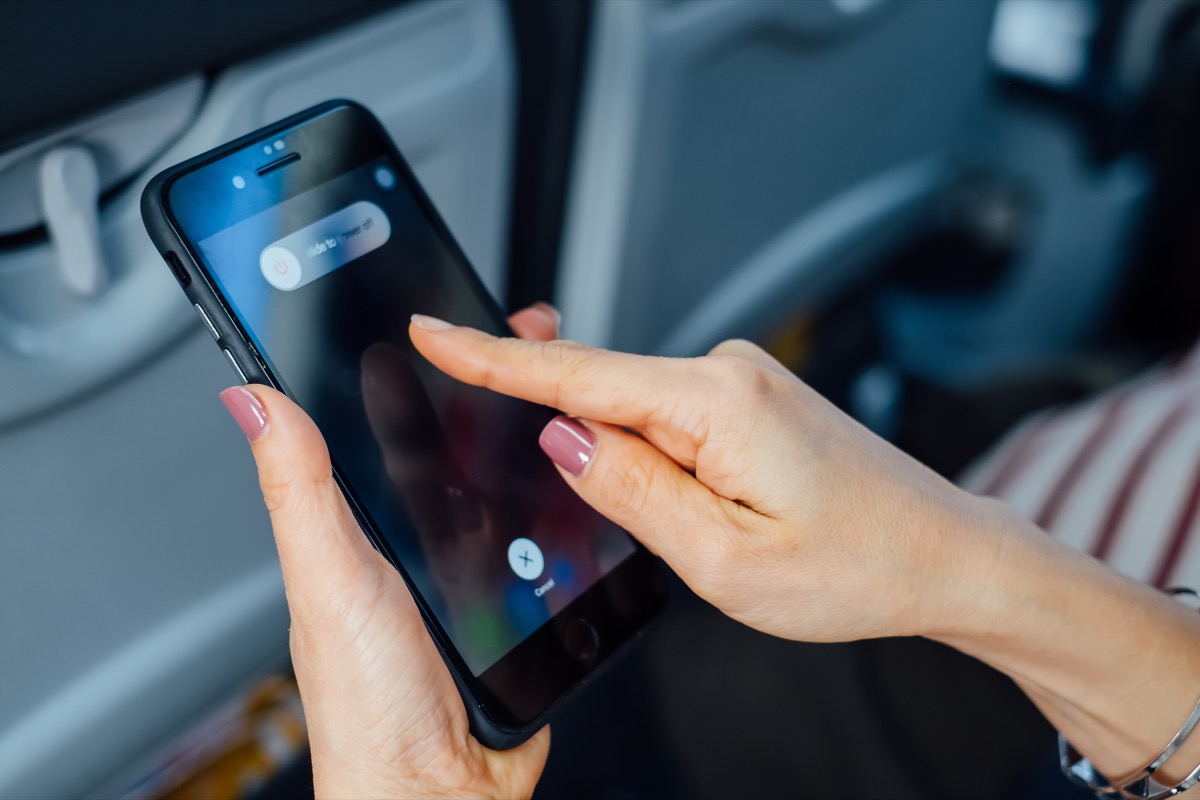5 Practical Steps to Detox From Your Stressful Digital Life, Experts Say

We live in a digital world, and whether we’re online for work, social reasons, entertainment, or boredom, a phone, laptop, or tablet is usually in our hands. With a click of a button, we’re connected to friends and family, and while that’s convenient, it can also be harmful—potentially leading to a range of health issues.
According to Statista, the average time Americans spend online daily is a whopping eight hours and 28 minutes. That excessive amount has consequences. “It often leads to increased anxiety, disrupts our sleep patterns, and can even make it difficult for us to concentrate on tasks,” says Dr. Daniel Glazer, a clinical psychologist specializing in trauma and co-founder of US Therapy Rooms.
Luckily, committing to a digital detox can recharge and reset your mind and body. “By minimizing screen time, you can improve your sleep routine, reduce anxiety, and deepen your inner connection,” says Kristie Tse, a psychotherapist and founder of Uncover Mental Health Counseling.
We rely on our devices more than ever, but breaking the bad habit of obsessively being online can help you regain balance and improve your quality of life. Read on for signs you may be too attached to your screens and how you can cut back via a digital detox to cut back.
RELATED: 10 Cybersecurity Tips Everyone Needs to Know Now.
Why Digital Detoxing Is Important
Spending too much time on a device has several negative health consequences that you may not know about.
“Dopamine is a neurotransmitter naturally produced by both the gut and the brain and plays a crucial role in regulating attention, focus, and motivation, but it’s most well known for driving our pursuit of rewards and pleasure,” says Jewel Zimmer, a certified brain health trainer.
Continuously using digital devices “can dramatically stimulate dopamine at high levels that our brains can’t sustain,” Zimmer explains. “Engaging in a digital detox isn’t just a trend; it’s a crucial and sustainable step toward reclaiming control over our well-being in the digital age.”
How to Know If You Need a Digital Detox
Compulsive device use can interfere with work, school, or relationships. If you’re spending more time online than with friends or family in person, it might be time to reevaluate your tech usage.
“When you notice that you habitually reach for your phone immediately upon waking or just before sleeping, it’s a strong indicator of becoming too attached to your screen,” Tse explains. “Additionally, reliance on devices in social situations or feeling anxious without them are clear signs of excessive attachment.”
Sound familiar? OK, well here are the steps you can follow to practice your own digital detox:
1. Create Boundaries

Setting limits is important when kicking off a digital detox, and one way to start is by limiting where you’re allowed and not allowed to use your phone or other tech.
“Restricting devices in the areas of the home where the pillars of health (sleep, sex, eating, and other social engagement with loved ones) are supported is a good place to start,” says Ashley Madsen, PA-C, HHC, ABAAHP, Clinical Director of Wellness at Ethos Aesthetics + Wellness. “Typically, they are the bedroom, bathroom, and dining room.”
This means leaving your devices in another room before having dinner, going to the restroom, or getting ready for bed. Put your chargers in those rooms and rely on old-school methods (like an alarm clock) to know what time it is.
“There are multiple health reasons to do this, but one is helping to detach from your device’s blue light,” Madsen explains. “Some of my patients keep their phones in their cars overnight to help build the habit.”
RELATED: 11 Bedtime Routines That Will Help You Sleep Through the Night.
2. Turn Your Phone Off During Certain Times

It’s a big step, but making yourself unavailable for a certain amount of time can help you stay committed to a digital detox.
“I also recommend the DoNotDisturb feature when you get home from work, which allows calls or messages from certain people, such as your children, to come through,” Madsen says. (You can find this feature on most smartphones.)
This should be a no-brainer when you’re at events that deserve your full attention, such as meetups with friends, going to the movies, journaling, or working out. You don’t need your phone on during these short sessions.
3. Ground Yourself Outside Without Your Phone

Being outdoors and enjoying nature has a calming effect that can boost your mood and overall health. According to Dr. Carly Snyder, a board-certified reproductive and perinatal psychiatrist, ditching your phone and watching the sunset or taking an evening stroll can help restore your mental well-being.
“I recommend earthy activities to switch out the buildup of stress hormones, like cortisol, and increase the feel-good hormones, such as serotonin, through a connection to nature.”
Dr. Snyder finds this step of a digital detox so impactful because it’s really simple and easily accessible.
RELATED: 40 Nature Quotes to Inspire You to Enjoy the Great Outdoors.
4. Toggle Off Those Annoying Notifications

Stop the temptation to race to your phone every time you hear it ping, which is truly very disruptive. Every phone and internet browser has a way to turn off notifications, so look to your settings to shut everything down.
“This is essential for the detox—and, honestly, forever,” says Irene Williams, founder and lead educator at The Digital Life Academy. “You must train yourself to check for messages and updates only at times that work for you and help you stay in touch and get things done. Notifications kill your focus, creative flow, and attention span.”
5. Avoid Your Phone Upon Waking

Many people’s morning rituals involve rolling over and checking their phones before getting out of bed, having breakfast, or saying good morning to their partner… which is quite unhealthy.
Delaying looking at a screen helps you feel that you are starting the day off aware of the outside world and that the world is so much bigger than your own concerns,” says Dr. John La Puma, board-certified internationally recognized internist and the founder of ChefMD®.
Instead, upon waking, do some light stretching, kiss your partner, look outside the window, or go make some coffee. “This will restore your attention, reduce negative emotions, and lower stress,” says Dr. Puma.